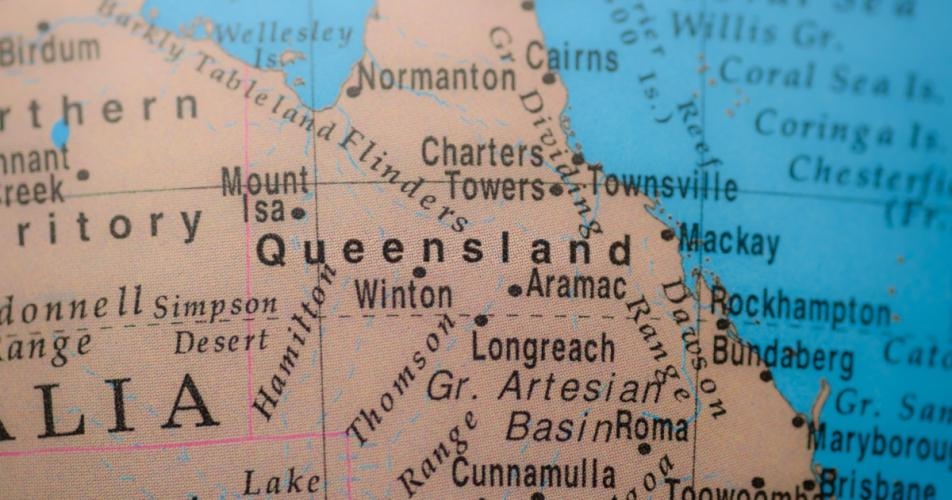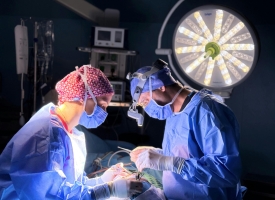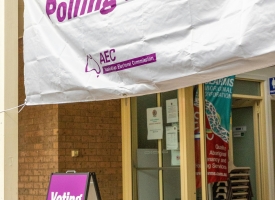Challenging access to elective surgery in Western Queensland
Hospital funding models must be addressed to ensure patients in all regions can receive the surgical care they require close to home, AMA Queensland President Dr Nick Yim told ABC Radio North West. "Currently some of the funding models for hospitals, it is quite complex. It's what we call activity-based funding. So, if areas aren't producing those surgeries or having those surgeries, they're actually not getting funded."

Transcript: AMA Queensland President, Dr Nick Yim, ABC Radio North West, Breakfast with Zara Margolis, Tuesday 26 November 2024
Subjects: Elective surgery wait lists
ZARA MARGOLIS: People in the West are used to having to wait longer for things. For your items to come in the mail, to get an appointment at your local GP. But how long is too long? In the Central West, nearly 35 per cent of patients are waiting for gynaecology surgery, for example, longer than the clinically recommended timeframe. The Australian Medical Association Queensland wants the new Queensland Government to do something about this, to undertake urgent reform to fix access to surgeries in places like Longreach and Winton. AMA Queensland President Dr Nick Yim spoke with Hannah Walsh about the project.
DR NICK YIM: This is a project that AMA Queensland has been working on with the AMA Queensland Surgical Wait List Roundtable. We've identified over many years that surgical wait lists, getting in to see a surgeon and also the surgical procedure, has been getting delayed and is putting additional pressures on patients. Delays in surgery may lead to increased pain, to complications down the track. And the fact that we're such a big state means we need different strategies across the state to keep an eye on the community.
The Surgical Wait List Roundtable was implemented in consultation with different specialties including surgeons, gynaecologists, anaesthetists, GPs and emergency doctors across the state. This plan was produced prior to the election, and we gave it to both major parties. Now it's the time to implement some of the strategies within this plan.
HANNAH WALSH: What are the key short and long-term solutions that would impact out here in Western Queensland?
DR NICK YIM: We know that in Western Queensland there are challenges, and one of the big challenges is workforce. To have a surgery take place, it's not just about the surgeon. It requires a surgeon, the anaesthetists, the nursing team, the allied health team, and also the operating theatre team. So we are thinking of different strategies to work with Queensland Health to implement this moving forward. And some of these strategies could be collaborative teams that maybe rotate from metropolitan areas. But this has obviously got to be worked up with that local service.
HANNAH WALSH: Have you noticed that it's particularly worse at the moment? What are some of those wait times from the last reported quarter? Are people waiting longer than in previous years?
DR NICK YIM: The importance here is looking at the data, and the current government has committed to looking at accurate data. We have concerns, obviously, even though some of the surgical wait times for procedures has improved, we have noticed that people waiting to get in to see an appointment has been being extended. The first thing is needing to get the data and following up on that to see how we can implement some of these strategies.
HANNAH WALSH: So specifically, just coming back to those solutions for Western Queensland, because one of the big things out here is limited staff and resources. Is one of the major things that was proposed for out here those collaborative teams to get more people out here? What are some of the other things?
DR NICK YIM: Collaborative teams are important. We know that in Queensland, being such a big state, not every area might have enough staffing to have those surgeries. That staff includes surgeons, anaesthetists, nurses and operating staff, and collaborative teams might be an option for those hospitals out in Western Queensland.
The other big thing that we need to do is ensure we have appropriate investments in place. Currently some of the funding models for hospitals, it is quite complex. It's what we call activity-based funding. So, if areas aren't producing those surgeries or having those surgeries, they're actually not getting funded. This is something that we need to have a chat with the government to look at different funding models and investments into those outer regions to ensure that people can have their surgeries in their region. Because I know that if you have care within your own community, you have better outcomes.
While we are advocating for doctors and the profession, we know that community healthcare is so important. If people can have their procedures, their consultations, within their own community you will have better outcomes. It just means less travel time, less time being away from their families and in their home.
HANNAH WALSH: Are you hopeful that the new government will implement some changes?
DR NICK YIM: I'm really optimistic. We had a meeting with Health Minister Nicholls only last week, and I'm really optimistic that we can continue to work with our government to ensure the health of our community and our state.
ZARA MARGOLIS: Dr Nick Yim, AMA Queensland President, speaking with Hannah Walsh about how they're calling on the new state government to undertake urgent reform to fix access to surgeries in places like Longreach and Winton, but elsewhere as well. In the Central West, apparently nearly 35 per cent of patients waiting for gynaecological surgery in particular, they're waiting longer than the clinically recommended timeframe. The Central West Hospital and Health Service has been contacted for comment about this but had not responded in time for this interview.
Contact: AMA Queensland Media: +61 419 735 641 media@amaq.com.au


